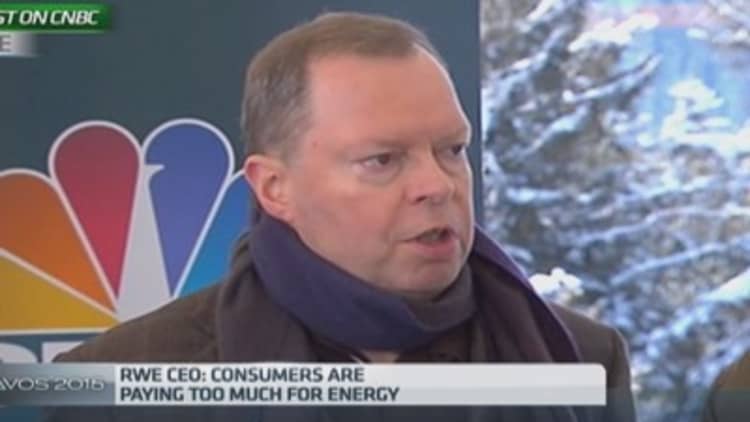The European Central Bank is planning to announce a 50 billion euros ($58.3 billion) a month quantitative easing (QE) program, sources with knowledge of the situation confirmed to CNBC on Wednesday.
The Wall Street Journal first reported that the ECB's executive board was proposing 50 billion euros of bond purchases per month. There was also a report that this program would last until the end of 2016, although this was unconfirmed.
The central bank formally declined to comment. European and U.S. markets rallied on the report.
A QE program would see the European Central Bank purchase euro zone government bonds in the hope of boosting the region's painfully low inflation, which came in at an annual -0.2 percent in December.
The ECB has come under pressure to launch a full-blown QE program from hard-pushed businesses and governments. The head of the Organisation for Economic Co-operation and Development (OECD) urged the ECB into action on Wednesday.
"Of course it can help!" Secretary-General José Ángel Gurría told CNBC at Davos, Switzerland, in reference to QE.
"You know they should just get on with it…we will see what the limits are… let's do it!" he enthused.
QE has already been implemented by other major central banks, such as the U.S. Federal Reserve, the Bank of Japan and the Bank of England, in order to stimulate their economies.
Read MoreWorld economy heading back to the 1980s: IHS
"It's the only game in town… the ECB is the last actor to join in QE," said Gurria. "Why is it the only game in town? …because interest rates are zero."
Business leaders who spoke to CNBC at the World Economic Forum in Davos on Wednesday were eager to discuss the possibility of QE.
Read MoreIs Draghi about tomassively misfire?
José Ignacio Sánchez Galán, the CEO of Spain's Iberdrola, echoed Gurria in urging the ECB into action. "They have to do anything, but not stand by," he told CNBC.
The chief executive of Henkel, Kasper Rorsted, said a QE program would be a "very good sign," but emphasized the need for further structural changes in Europe—a note also struck by another head of a German conglomerate.
"I would suggest that he (ECB President Mario Draghi) doesn't go in for quick wins, but that he looks at a structural improvement," the CEO of RWE, Peter Terium, told CNBC on Wednesday.
"He can disrupt the structural improvement by doing harsh things…. He should look at the long-term implication of anything he will do."






